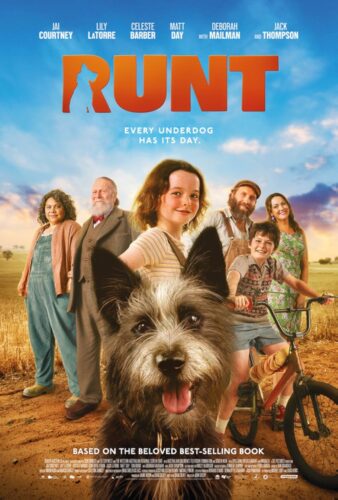Following the Sundance Film Festival screenings of Mum, I’m Alien Pregnant, producer Alix Whittaker and directors THUNDERLIPS bring an insider’s perspective on navigating one of cinema’s most artistically influential festivals. Together, they unpack the realities of strategic preparation, selection, and on-the-ground participation at Sundance. Umbrella Entertainment joins the conversation from a distributor’s viewpoint, offering insight into how films are positioned, discovered, and sustained beyond their premiere. Collectively, the panel examines the evolving role of festivals in an era shaped by streaming platforms, fragmented audiences, algorithmic discovery, and emerging storytelling forms.
Garnering a 100% Fresh rating on Rotten Tomatoes thus far, Mum, I’m Alien Pregnant marks an astonishing debut from a New Zealand team with clear global talent. This session offers a rare, candid look at how bold creative work cuts through internationally, making it essential for filmmakers, producers, and screen practitioners seeking to understand how festivals can still launch careers, shape conversations, and open doors in a rapidly changing screen landscape.
“On its surface, Mum, I’m Alien Pregnant plays like an outrageous midnight movie, rich in wild jokes, gross-out gags, and racy sci-fi spectacle. But beneath that, THUNDERLIPS has built a compelling mother-daughter tale that empathetically probes the choice to be child-free. So, if you see this for the unapologetically unhinged comedy, you won’t be disappointed. But you might walk away with some refreshing representation and weirdly prepared food for thought as well.”
– Kristy Puchko, Entertainment Editor, Mashable
Tuesday 24 February 2024
6:00 – Arrivals
6:30-7:30pm – Kōrero
7:30-8:30pm – Refreshments and socialising
$6.50 + GST + Booking Fee. Sales via Humanitix to secure your seat
Where: St Columba Centre, 40 Vermont Street, Ponsonby, Auckland
After the talk, stay and have pizza on Script to Screen. There will be socialising with fellow filmmakers.
This Script to Screen KŌRERO is made possible thanks to New Zealand Film Commission, NZ On Air, White Studios and Images and Sound.
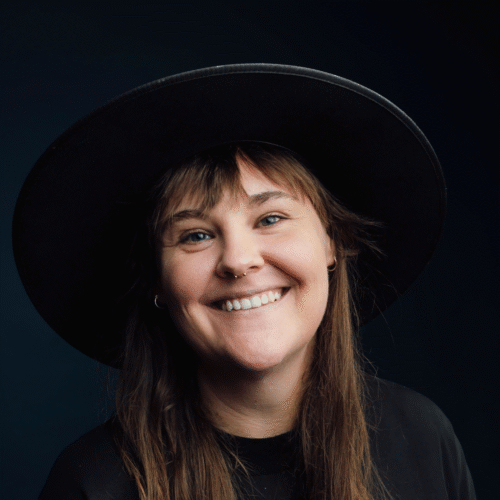
ABOUT ALIX WHITTAKER
Alix Whittaker is an Auckland-based film producer and founder of Candlelit Pictures, with over a decade of experience across feature films, short films and music videos. She has produced award-winning music videos and supported emerging directors through a strong focus on story-driven, director-led work. Her feature credits include Mega Time Squad and Mum, I’m Alien Pregnant, which premiered at Sundance to positive reviews. Alix is an alumna of the NZ Film Commission’s A-Z Producing Course and is known for championing distinctive voices and ambitious independent filmmaking in Aotearoa.
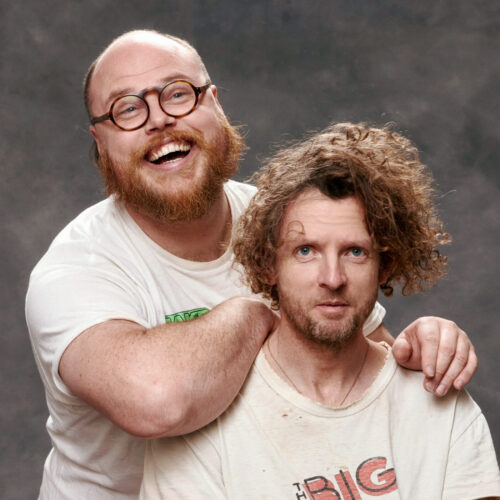
ABOUT THUNDERLIPS
THUNDERLIPS is born of image-crazed uber-men Sean Wallace and Jordan Mark Windsor, a multi-award-winning image-making duo based in Auckland, New Zealand. Genre chameleons by nature, they’ve created work spanning 90s sitcom pastiche, GIF-only teen romance, queer cinéma vérité, 80s teen horror, and animated digital fever dreams, shooting across formats from 35mm to Hi-8 and favouring practical in-camera effects. Their commercial work for brands including Lotto, Samsung, Meridian Energy and 2Degrees showcases sharp narrative instincts and comic flair. Their films include acclaimed shorts Think We Might Have to Do Something (48HFP Grand Finals, 2013) and Lord Echo – Molten Lava. Mum, I’m Alien Pregnant is their feature film debut.
ABOUT UMBRELLA ENTERTAINMENT
Umbrella Entertainment is an independent Australian film distributor specialising in bold, distinctive, and culturally significant cinema. With a catalogue spanning contemporary features, cult classics, restorations, and genre-defying work, Umbrella has built a reputation for championing filmmaker-driven stories that resonate with passionate audiences. Operating across theatrical, home entertainment, and digital platforms, the company is known for its strong curatorial voice, creative marketing strategies, and commitment to giving films a long life beyond their initial release. Umbrella plays a key role in connecting ambitious local and international films with audiences in Australia, New Zealand, and beyond.
A beginner’s guide to mobile filmmaking is an action packed one-day workshop for Eastern Bay community youth ages 14-18. Learn about the fundamentals of filmmaking and work in teams to create short films on mobile phones.
You don’t have to have a phone to attend – this a free workshop where all equipment is provided. If you have an interest in telling stories, screenwriting, acting, filmmaking or if you want to investigate if filmmaking is right for you, this workshop will provide you with the first steps to making your own work.
At the conclusion of the workshops, we invite friends and whānau for a screening of the day’s work. This is an exciting moment for everyone involved to celebrate the possibilities of what can be created in a day.
The Workshop is presented by Script to Screen, Aotearoa’s leading screen training and professional development organisation. A not-for-profit charity, Script to Screen has been at the forefront of screen industry training since 2007. Since that time, we have run successful workshops in centres across the motu, including Hokianga, Kerikeri, Kaikohe, Whangārei, Auckland, South Auckland, Rotorua, Invercargill, Hamilton, Wellington, Christchurch, Dunedin and Queenstown.
We are excited to bring this kaupapa to Kawerau and support the aspiring storytellers in the region.
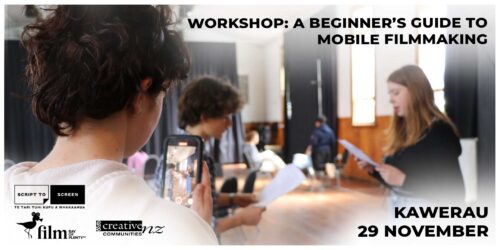
When and where:
Saturday 29th November 2025
9am – 5pm
4:30pm – Screening: Friends, whanāu and locals are welcome to view the films made
Concert Chamber, Ranfurly Court, Kawerau
The venue is wheelchair accessible
Cost: The workshop is free, please register via Humanitix as spaces are limited
What’s provided:
What to bring:
ABOUT PROGRAMME MENTOR
JAMIE IRVINE
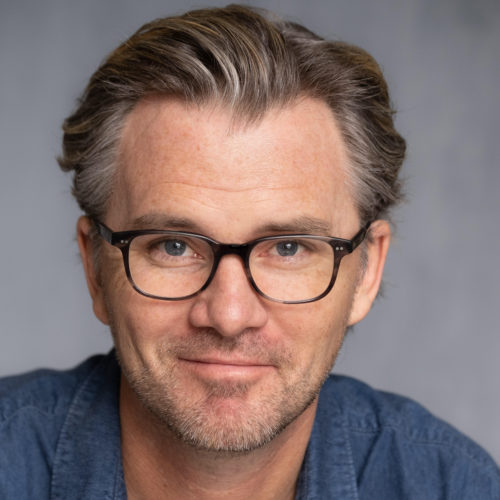
Jamie Irvine has worked in film, television and theatre since 1998. After leaving New Zealand to study in 2003, Jamie spent several years in both Sydney and Los Angeles, where he worked as an actor and voice artist as well as teaching at NIDA, Actors Centre Australia, Theatre of Arts Hollywood and various other organisations.
Since returning to New Zealand in 2017, Jamie has performed in various productions including Tinā, The Brokenwood Mysteries, Black Hands, Sweet Tooth, Centrepoint, Power Rangers, Duckrockers, Mystic, N00b, Literally Dead, My Life is Murder, M3gan 2.0 and Shortland Street. On stage, he in the PopUp Globes productions of Richard III and Taming of the Shrew. He directed the NZ on Air Funded webseries Here if you Need. He has also taught acting at South Seas Film and Television School and worked as programme manager at Script to Screen.
Whether in front of or behind the camera, Jamie is passionate about storytelling and helping others reach their potential.
This workshop is made possible thanks to Script to Screen’s partnership with Film Bay of Plenty and the generous support from Kawerau Council Creative Communities Scheme.


“An excellent and mandatory program for Aotearoa’s new wave of storytellers, writers and filmmakers. Opportunities like this to develop, learn, un-learn and grow are very rare in the world. And to share this space with other high-level creatives and mentors/industry experts only elevates our professional standards and work. Big thank you to Script to screen!”
Danny Aumua
FilmUp 2023/24 participant (mentor Catherine Fitzgerald)
The FilmUp Mentorship is professional development programme for filmmakers making feature films. In 2026 it will continue to support and empower eight tenacious and talented feature filmmakers to reach the next stage in their creative careers.
As this is a one-to-one mentorship, it is open to individual filmmakers rather than writing partnerships and/or teams.
Applications are now open for filmmakers who are writers, directors or producers with a feature film project and who can demonstrate that their project and career are at the right stage for mentorship.
FilmUp will run from April to November 2026.
Each successful filmmaker will receive:
Mentorship forms the cornerstone of the FilmUp programme, successful applicants can clearly identify and hold their learning and development needs. Autonomy is fostered from the start of the programme with participants actively involved in the selection of their mentor and additional support.
Since its inception in 2013, FilmUp has gone from strength to strength, with a growing number of alumni who have benefitted and progressed from the programme, including 22 debut feature films being made by alumni following their FilmUp mentorship.
Alumni include Briar March (Dame Valerie Adams: MORE THAN GOLD, Mothers of the Revolution), Chelsea Winstanley (TOITU:Visual Sovereignty,Ka Po, Night Raiders), Desray Armstrong (Kōkā, The Mountain, Bad Behaviour), Florian Habicht (James & Isey, Spookers), Gaysorn Thavat (The Justice of Bunny King), Jake Mahaffy (Reunion, Free in Deed), Nic Gorman (Human Traces), Paula Whetu-Jones (Whina, Waru), Sophie Henderson (Workmates, Baby Done) and Stallone Vaiaoga-Ioasa (Three Wise Cousins, Take Home Pay).
KEY DATES:
APPLICATIONS OPEN: Monday 29th September 2025
Q&A WEBINAR: 6:00 pm, Wednesday 15th October 2025
FilmUp Transcript Please note this has not been edited.
APPLICATIONS CLOSE: 1:00 pm, Monday 10th November 2025
NOTIFICATION OF OUTCOME: Early December
HUB DATES: (Dates subject to change)
HUB 1: Auckland (2 days) – Monday 20th and Tuesday 21st April 2026
HUB 2: Online – Friday 22nd May 2026
HUB 3: Auckland (1 day) TBC – proposed late June/ early July
HUB 4: Online – Friday 28th August 2026
HUB 5: Auckland (2 days) – Thursday 5th and Friday 6th November 2026
APPLY FOR FILMUP:
https://form.jotform.com/Script_to_Screen_NZ/2026-filmup-mentorship-application-
APPLICATION REQUIREMENTS:
FilmUp is a one-to-one mentorship for individual filmmakers who are working on a feature film or feature documentary. You must be a NZ citizen or permanent resident to apply.
Make sure you read our Top Tips to make your FilmUp application shine while crafting your application. FilmUp top tips to apply 2026
Selection Criteria:
The selection criteria is used by the selection panel to help assess your application and guide their discussion. Listed below in no specific order.
FilmUp is made possible thanks to financial support from the New Zealand Film Commission.
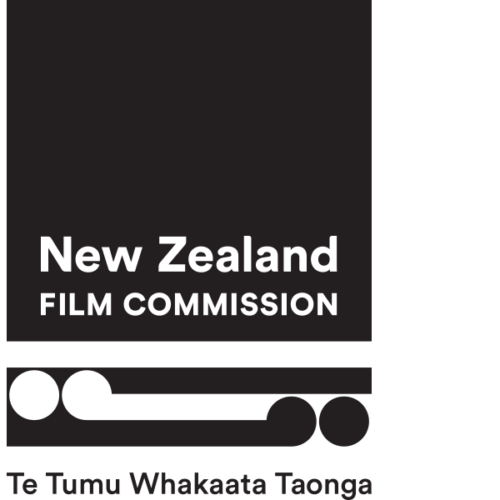
Join Script to Screen for a one-day short film workshop in South Auckland. Thanks to the support of Foundation North, anyone – no matter their filmmaking experience, can learn to develop their short film ideas.
Feel empowered with the tools to make your story come to life. This workshop will cover the key fundamentals of creating short films including crafting story ideas, pitching to collaborators and what it takes to be able to go on to make a short film.
This workshop is led by award-winning actor, writer, director Nikki Si’ulepa, who tells bold, heartfelt stories that champion underrepresented voices and communities —stories with grit, soul, and the occasional cheeky wink. The mana of you and your story ideas will be safely held throughout the duration of the day.
The South Auckland Short Film Workshop provides a stepping stone to applying for the Script to Screen South Shorts Mentorship programme as well as other short film initiatives like Day One Shorts. It is also a fantastic opportunity to meet other creatives within the community and be inspired by filmmaking’s possibilities.
We welcome anyone who wants to tell their stories through film. If you’re a new or emerging filmmaker or a local South Auckland creative this workshop is for you.
When and where:
Saturday 1st November 2025
9am – 5pm
Friendship House, 20 Putney Way, Manukau, South Auckland
The venue is wheelchair accessible
Cost: $12.50 (INC BF & GST) Book via Humanitix
Morning tea and afternoon tea provided, BYO lunch
What to bring:
ABOUT PROGRAMME MENTOR
NIKKI SI’ULEPA

Nikki Si’ulepa (she/her) is an award-winning actor, writer, and director whose work spans film, television, and digital platforms. She’s lit up screens in Bookworm, Big Girls Don’t Cry, Tangata Pai, Creamerie, Housebound, Same But Different, and Pot Luck—and her films have screened (and won stuff!) at Berlinale, Tribeca, Sydney, Melbourne, FIFO, and NZIFF.
A proud Sāmoan, queer creative, Nikki tells bold, heartfelt stories that champion underrepresented voices and communities—stories with grit, soul, and the occasional cheeky wink. She is a co-founder of PISA – PACIFIC ISLANDS SCREEN ARTISTS – a global Pasifika screen collective. She also runs ACTING UP! FOR SCREEN and SCREENFIT—fast-paced, no-fluff workshops where actors, writers, and directors flex their creative muscles and get real-time feedback (with less sweat, more script).
Whether she’s behind the camera or holding space as a kaihautū for emerging storytellers, Nikki’s all about inclusive, collaborative, fun spaces—with purpose, passion, and a healthy amount of laughs along the way.
This workshop is made possible thanks to generous support from Foundation North and Auckland Council Creative Communities Scheme.


Te Tari Tuhi Kupu a Whakaahua Script to Screen invite applications for two different roles within our organisation.
Opportunities available to work with us include the Programme & Events Manager (Parental Leave Cover) and Programme Facilitator (Contract)
Script to Screen is Aotearoa’s leading organisation dedicated to developing screen culture and NZ’s storytelling talent. We deliver world-class development programmes, labs, and workshops that support emerging and established filmmakers to tell bold and authentic stories.
Programme & Events Manager
PARENTAL LEAVE COVER
October 2025 – December 2026
Fulltime
This role is based in Auckland
The PROGRAMME and EVENT MANAGER is a senior role within STS and BSS. The main focus of the role is the exceptional management of all our programmes and events.
Key responsibilities include co-designing programmes and events with the Script to Screen Executive Director, managing the logistics of all development programmes and events and applying for funding.
The Programme and Events Manager will take a lead across all the STS development programmes and events for STS and BSS.
For role requirements, please refer to the job description pdf below.
PDF Programme & Events Manager Job Description: https://script-to-screen.co.nz/wp-content/uploads/2025/09/Programme-Events-Manager-Parental-Leave_updated.pdf
Apply for Programme & Events Manager Role: https://form.jotform.com/Script_to_Screen_NZ/job-application-pro-events-manager
Deadline: End of Day – Monday 6th October 2025
As this is parental leave position, we are flexible with the start and end dates.
We are very keen to hear from anyone with the relevant skills and experience for this role. Although there is a deadline (Monday 6th October), we will undertake meetings and interviews as and when people get in touch, so the role may be filled prior to the closing date. We therefore encourage early contact.
Please email info@script-to-screen.co.nz to have an initial conversation or use this link to submit an application.
Programme Facilitator
This role may be based outside of Auckland. EOI is open nation wide.
The STS Programme Facilitators are FIXED TERM CONTRACTOR ROLES responsible for hosting and facilitating STS development programmes, workshops and hubs. They will work closely with the STS Executive Director and Programme and Events Manager to ensure all programmes are delivered to the highest standards, meeting the needs of the participants, leaders, STS and our funders.
STS is seeking Expressions of Interest from Screen industry professionals who are interested in contract work.
For role requirements, please refer to the job description pdf below.
PDF Programme Facilitator Job Description: https://script-to-screen.co.nz/wp-content/uploads/2025/09/STS-Programme-Facilitator-Role.pdf
Submit your EOI: https://form.jotform.com/Script_to_Screen_NZ/EOI-programme-facilitator
Deadline: End of Day – Monday 20th October 2025
About Te Tari Tuhi Kupu a Whakaahua Script to Screen
As the leading screen sector talent development and training organisation in Aotearoa for nearly 20 years, Te Tari Tuhi Kupu a Whakaahua Script to Screen (STS) is dedicated to supporting Aotearoa’s screen storytellers and growing a diverse, inclusive screen industry that reflects our communities.
Our commitment to Te tiriti o Waitangi and Tangata Whenua underpins our kaupapa and organisational mahi. We are guided by teachings and learning within te Ao Māori, incorporating a tikanga Māori lens across our work, while being led by the principles of Manakitanga, Kotahitanga, Tika and Pono.
STS is a not-for-profit charity whose core business is the professional development of screen storytellers (writers, directors, producers). We provide bespoke talent development programmes, mentorships, and professional training programmes that help develop skills and champion voices from across the country.
STS also runs Big Screen Symposium (BSS). Our largest event, this two-day immersive event is focused on bringing the NZ screen industry together to connect, learn and be inspired. A mix of panel discussions, masterclasses, workshops, keynote speeches and industry meetings, this high-level industry conference attracts 400-500 people each year and is funded by all of the key major industry funders and organisations.
Photography by Evie Mackay
Script to Screen in association with Foundation North presents a 1-day adult workshop covering scriptwriting for screen in Whangārei. We look forward to facilitating the opportunity for local Northland screen story tellers to work with renowned writer, director and author, Michael Bennett (The Gone, In Dark Places), after a successful Kerikeri workshop last year.
The morning will be spent delving into character, story structure, key moments and writing fundamentals and then in the afternoon you will develop your own original story idea and write a scene.
Not to be missed, this is a practical and interactive workshop that will help you find the momentum you need to initiate a screen story or move your project forward.
If you’re a new or emerging filmmaker or a local creative wanting to reinvigorate a screen idea or explore writing for film and television, this workshop is for you.
When and where:
Sunday 21st September
9am – 5pm
ONEONE SIX
116A Bank Street, Whangārei 0110
Venue is wheelchair accessible
Cost:
$25 including GST and booking fee. Tickets via humanitix
Morning tea and afternoon tea provided, BYO lunch
Workshop Prep:
Before Sunday if you get the chance it may be beneficial to watch a few episodes of Michael Bennett’s recent work, The Gone (here) Free on TVNZ+.
What to bring:
We do not advise participants to take notes on phones.
ABOUT PROGRAMME MENTORS
MICHAEL BENNET
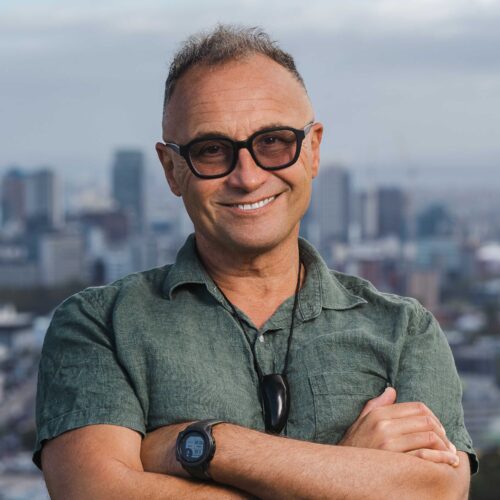
Michael Bennett (Ngāti Pikiao, Ngāti Whakaue) is a screenwriter, filmmaker and author. Michael’s short films and feature films have screened and won awards internationally, including Cannes, Toronto, Berlin, Locarno, New York, London, ImagiNative and Dreamspeakers. He is the 2020 recipient of the Te Aupounamu Māori Screen Excellence Award, awarded by the NZ Film Commission for excellence in Māori filmmaking. Michael devoted many years of his recent career to the fight for justice for Teina Pora, a young Māori man wrongly imprisoned for 21 years. Michael made the documentary The Confessions of Prisoner T, which lead to the discovery of evidence pivotal to Teina’s exoneration. Michael directed and co-wrote the TV feature film In Dark Places about Teina’s case, which was finalist for a record 11 awards in the NZ Television Awards, winning Best Film and Best Director. Michael has been head writer or showrunner for many dozens of hours of prime-time television drama including The Gone (NZ / Ireland crime thriller), Vegas (crime thriller), Te Kohu (supernatural drama), and Mataku (the Māori Twilight Zone). Michael’s debut novel Better The Blood, a crime thriller, was published in 2022 in the UK, USA, Australia and NZ, with nine international translations. Better The Blood was a finalist for the fiction prize at the 2023 New Zealand literary awards (The Ockhams) and won Best First Novel at the Ngaio Marsh Awards. Michael is currently adapting his novel for television, and his second novel, Return To Blood, is in bookstores now.
This workshop is made possible thanks to generous support from Foundation North, Whangarei District Creative Communities Scheme and White Studios.
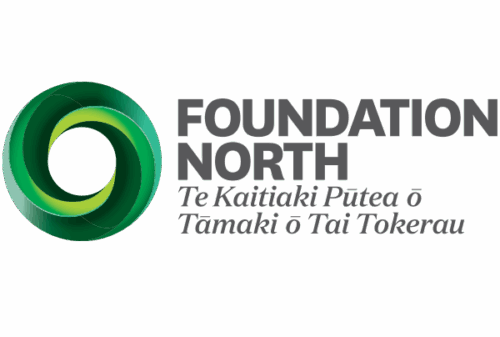

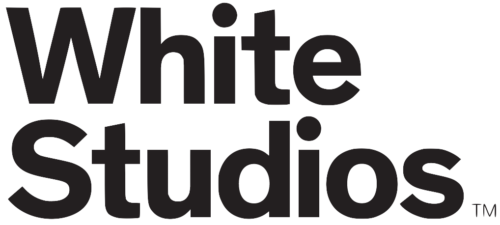
We are also running a Youth school holiday workshop. Check it out using the link below.
Script to Screen Script to Screen in association with Foundation North is presenting presents a free four-day filmmaking workshop in the September school holidays for 14 – 18 year olds.
This is an outstanding opportunity for the next generation of filmmakers to develop skills and learn about the fundamentals of crafting a story idea, writing a script, and acting for camera.
The aim of the workshop is to foster filmmaking talent in the Northland region and to provide an opportunity for young creatives to learn new skills and level up without having to travel outside of the region. No experience or prior knowledge of filmmaking is necessary. We encourage anyone who has an interest in telling stories for the screen, writing and acting to apply.
The programme will be taught by Michael Bennett (storytelling and screenwriting) and local Whangārei theatre practitioner Laurel Devine (storytelling and acting).
When and where:
Monday 22nd September – Thursday 25th September
9am – 3pm each day
ONEONE SIX
116A Bank Street, Whangārei 0110
The venue is wheelchair accessible
Programme Structure:
Cost: The workshop is free, please register via Humanitix as spaces are limited
Morning Tea, Lunch and Afternoon Tea are provided. However, if you have special dietary requirements (allergies, gluten free, dairy free, keto, paleo, etc) please bring food with you.
ABOUT PROGRAMME MENTORS
MICHAEL BENNET

Michael Bennett (Ngāti Pikiao, Ngāti Whakaue) is a screenwriter, filmmaker and author. Michael’s short films and feature films have screened and won awards internationally, including Cannes, Toronto, Berlin, Locarno, New York, London, ImagiNative and Dreamspeakers. He is the 2020 recipient of the Te Aupounamu Māori Screen Excellence Award, awarded by the NZ Film Commission for excellence in Māori filmmaking.
Michael devoted many years of his recent career to the fight for justice for Teina Pora, a young Māori man wrongly imprisoned for 21 years. Michael made the documentary The Confessions of Prisoner T, which lead to the discovery of evidence pivotal to Teina’s exoneration. Michael directed and co-wrote the TV feature film In Dark Places about Teina’s case, which was finalist for a record 11 awards in the NZ Television Awards, winning Best Film and Best Director.
Michael has been head writer or showrunner for many dozens of hours of prime-time television drama including The Gone (NZ / Ireland crime thriller), Vegas (crime thriller), Te Kohu (supernatural drama), and Mataku (the Māori Twilight Zone). Michael’s debut novel Better The Blood, a crime thriller, was published in 2022 in the UK, USA, Australia and NZ, with nine international translations. Better The Blood was a finalist for the fiction prize at the 2023 New Zealand literary awards (The Ockhams) and won Best First Novel at the Ngaio Marsh Awards. Michael is currently adapting his novel for television, and his second novel, Return To Blood, is in bookstores now.
LAUREL DEVENIE

Laurel Devenie is Whangārei based theatre practitioner who works as an actor, director, teacher, and producer. She is co-founder of ONEONESIX and The Whangārei Fringe Festival and works in a creative director role at ONEONESIX. She is a graduate of Toi Whakaari and The John Bolton Theatre School. She has been involved in both professional and community projects all over the country and has worked with South Pacific Pictures, ATC, Silo Theatre, Capital E, Unitec, Prayas, Downstage Theatre, Red Leap, Northland Youth Theatre and Script to Screen. Laurel is the Director of Whangārei based theatre collective, Company of Giants and has led many devised theatre projects including Odyssey, The Owl and the Pussycat and Rangitahua. She has facilitated arts-based programmes to work with different sectors of the community and is curious about spaces where arts practice can be used to invite new ways of engaging within communities and organisations.
This workshop is made possible thanks to generous support from Foundation North, Whangarei District Creative Communities Scheme and White Studios.
“This development lab was a game-changer for my screenplay, allowing me to deeply refine my story while receiving guidance that was specifically tailored to the stage of development I was in. It wasn’t a one-size-fits-all approach, it was a truly immersive and personalized experience that helped me push my script forward.” – Participant 2025
Script to Screen welcomes feature film projects (narrative or documentary) that are ready for an in-depth development process to apply for Story Camp Aotearoa 2026.
Story Camp Aotearoa is a unique stepping stone for any project prior to pitching, funding and production. This development camp, which has tikanga and Māoritanga embeded in its kaupapa, enables screenwriters and their teams to shut out the noise from their usual working environment and life, embarking on a five-day journey of deep story development. The unique location of the camp both informs and protects the wairua of our participants and their stories.
Each film and team is matched with leading industry experts as advisors who are chosen specifically for the needs of the project, and where it is at in its developmental journey. Alongside in-depth story sessions with advisors, Story Camp Aotearoa also includes project-based group workshops; workshopping with actors; industry panel discussions and guest advisors from other artforms.
Alumni films from Story Camp which have since progressed through to production are Human Traces, Cousins, The Justice of Bunny King, There’s No I In Threesome, Juniper, Nude Tuesday, Millie Lies Low, Ms Information and Caterpillar.
Q&A WEBINAR WATCH NOW:
Story Camp Aotearoa Kaupapa
Story Camp Aotearoa is an intensive Feature Film development lab run by Script to Screen. Participants stay onsite in Auckland for the duration of the camp. This unique opportunity provides participants the freedom to switch off from the outside world and be immersed in their project.
Over the course of the camp daily content may include: group work, 3-5 story development sessions per day, time for personal and project reflection, and team meetings.
Sessions can include the following elements:
Shared communal spaces allow for participants to connect at mealtimes and breaks, building new relationships and discovering and advancing their projects together.
Script to Screen alongside our volunteers provide the manaakitanga of the camp, which includes ensuring coffee, food and amenities are provided throughout the course of the camp.
Story Camp is made possible thanks to generous support from Te Tumu Whakaata Toanga New Zealand Film Commission.
📸 Pictured 2025 advisor Miriama McDowell with writer Jamie McCaskill (Hide the Dog). Photo by Evie Mackay
APPLICATIONS CLOSE: 1PM, FRIDAY 21ST MARCH 2025
It has just come to our attention that some of our posts and promotional information regarding Waitaha Screen Development Incubator did not include all the eligibility criteria.
We are very sorry for this and any additional work this may have caused you. As a result, we are extending our deadline until Friday, 21 March, to allow all applicants more time to refine their applications if they want to. Again, we apologise for this technical error.
If you feel you no longer meet the criteria or you are concerned about whether you do, we are available to have a conversation with anyone that wants to. Please contact us on info@script-to-screen.co.nz
Eligibility & Selection Criteria?
This unique development incubator is now open for TV series (scripted or stand-alone documentary) and Feature Film (scripted or documentary) projects in development that are planning to be filmed and produced in Waitaha Canterbury. The purpose of this programme is to support the development of original IP in the region and support creators to progress their project to be equipped for funding and production.
This is an accelerated development programme where up to six projects will be selected to attend a two-day workshop held in Christchurch this May. Teams will then receive mentorship online from experienced industry practitioners to develop their projects. The culmination of this programme is an in-person pitch to an invited audience of project relevant guests in Auckland at the Big Screen Symposium (BSS) 2025. A representative of each team will attend BSS to pitch, further increasing their connections with other creators in the industry by attending all of BSS as a part of this programme.
This collaboration between Script to Screen and Te Puna Matarau will continue to bring attention to the talent and potential within Waitaha and create development opportunities, to strengthen and support screen storytellers, their projects and the future of screen in the region.
Applications open: Thursday 20th February
Applications close: 1pm, Monday 17th MarchApplication Deadline Extended: 1pm, Friday 21st March
Key Dates
This development programme has been designed with momentum and progression in mind. It has been structured in a way to help support teams to gain new information that can be implemented into their work, developed through an online mentorship, and utilized in a unique opportunity to pitch to decision makers within the industry within 2 months.
All teams chosen will need to commit to the dates below and the speed in which this programme will be run.
Programme dates:
Note: All workshop expenses are covered other than any travel for those attending from outside Waitaha.
Submission Requirements:
Feature Film (Scripted or Documentary):
TV Series (Scripted or stand-alone Documentary):
The Waitaha Screen Development Incubator is made possible thanks to funding from the
New Zealand Film Commission, and NZ on Air.
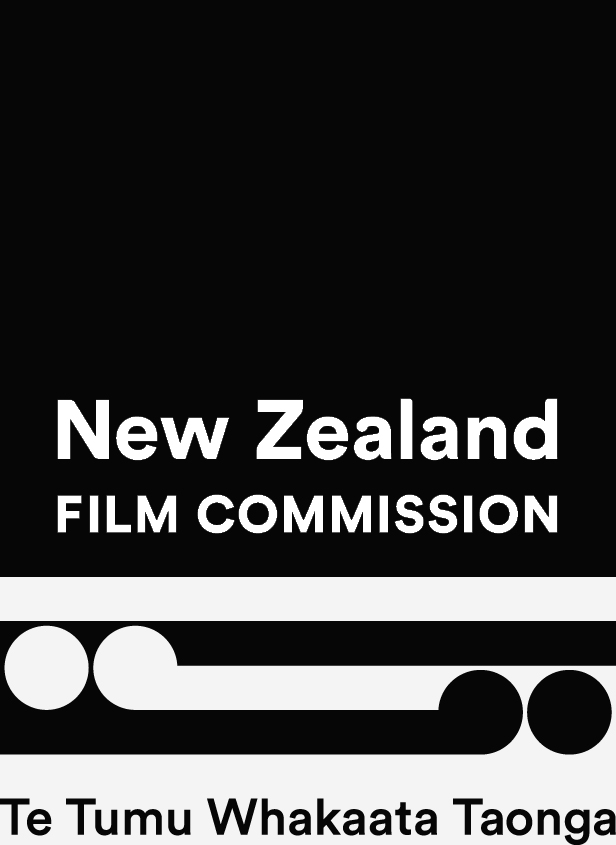

A Script to Screen Programme presented in partnership with Te Puna Matarau.

Image Building: Lincoln Mechanics cnr West Belt and Gerald Street – Image from The Lincoln Project by Kelly Shakespere
“The best family film since Babe”
David Stratton Australian Film Critic
Join Script to Screen for a special screening of the Australian box office hit film Runt, followed by a conversation with Director John Sheedy and STS Executive Director Dale Corlett.
This is a family friendly movie and for less than the cost of a coffee each, we encourage you to bring your family to the screening and Q&A.
Hear about John’s journey from theatre into feature film directing including the unique journey this film took from book to screen, and see if it’s true why they say “never to work with children or Animals” or in this case Dogs.
Monday 3rd March 2024
6:30 pm – 8:00 pm FILM
8:00 pm – 8:30 pm – Q&A
The Capitol Cinema, 610 Dominion Road, Balmoral, Auckland 1041
Following the screening and conversation, there will be time for networking.
$5.75 (incl. GST) for sales via Humanitix to secure your seat.
ABOUT OUR PANEL
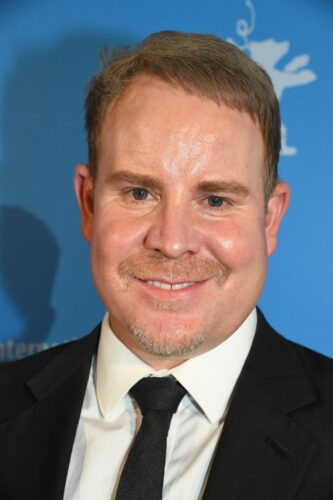
SPEAKER: John Sheedy – Director
John Sheedy is a multi-award winning Australian film, television, theatre director and writer.
His first feature film, H is for Happiness for Cyan Films, Universal Pictures Australia and Level K, premiered at the 2019 Melbourne International Film Festival, and won the prestigious Film Prize at Cinefest Oz. The film’s international premiere was at the Berlin International Film Festival in 2020 and it went on to receive a Special Mention by the Children’s Jury in the Generation Kplus section. John’s first short film Mrs McCutcheon won best Australian Short Film at the Melbourne International Film Festival 2017 and was invited to over 130 Festivals globally, winning 47 festival awards on the way through. He also received the award for Best Director at the 2018 Australian Directors Guild Awards.Most recently, John was set up director on the ABC drama series In Our Blood and Paramount Plus’s new teen drama series More Than This. He also directed a short film called Tarneit which is currently screening all over the world and has so far picked up 15 wins, including the prestigious IRIS Award in Wales and has received several nominations. John is currently attached as writer and director for the Screen Australia Funded feature 10 Moments, produced by Big and Little Pictures. John directed the new feature film Runt based on the Craig Silvey novel of the same name for See Pictures. Since it’s release Runt has become the third biggest local film of the year.
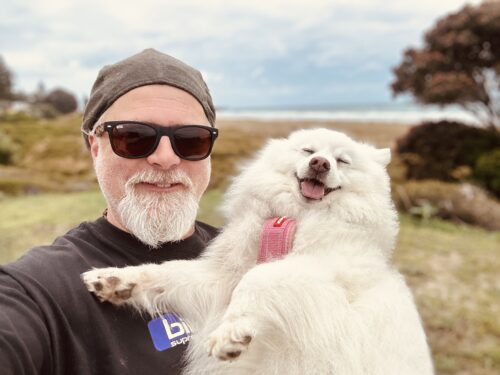
MODERATOR: Dale Corlett – Script to Screen Executive Director pictured with Akiko
Prior to joining Script to Screen in 2024, for 9 1/2 years he was the Head of Talent Development at the NZFC. During this time over 80% of the filmmakers supported through the various NZFC short films programmes have progressed into development or production on their feature films and tv shows. Dale was the CEO/Creative Director of GMAC Film in Scotland, responsible for identifying and developing high quality emerging talent and supporting their progression from shorts to features and developing careers. He was also proactive in the creation of innovative, diversity-led and gender focused talent development programmes across Scotland and the UK. He is a graduate of Toi Whakaari New Zealand Drama School who has worked as a director, actor, producer and writer. He was nominated for a Scottish BAFTA Best Director Award in 2009 for his debut feature film, Running Traffic.
This screening is made possible through the generous support from the film’s distributor Studio Canal, The Capitol Cinema and through Script to Screen’s ongoing core funding from Te Tumu Whakaata Taonga NZ Film Commission
